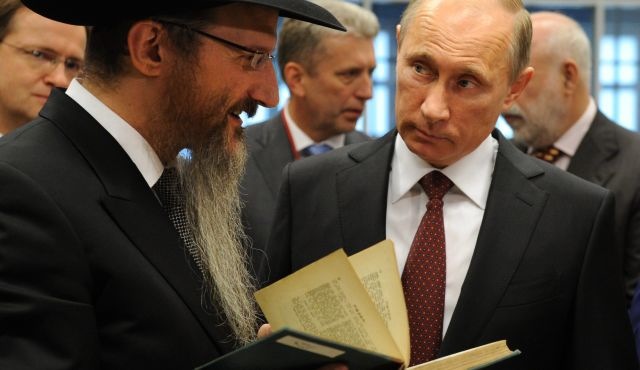A Conflict of Interest: Cultural Morality or National Security?
A dispute between the U.S. and Russia over the ownership of the Schneerson texts has added further tension to the already strained relations between the two countries. The Schneerson Library holds a collection of approximately 62,000 books and documents accumulated by Rabbi Joseph I. Schneerson throughout the 19th and 20th centuries. Although the scale of this problem may seem miniscule, adding more to an already shaky relationship between the U.S. and Russia could be enough to push one country over the edge.
This dispute began after the U.S. borrowed seven books from the Schneerson collection from Russia in the early 1990s. The U.S. never returned the books, but instead added them to a collection in the Library of Congress. The primary issue in this debate is which nation has legal ownership of the Schneerson collection. Last Thursday, a Moscow judge declared that the U.S. Library of Congress must hand the books over immediately, and pay a fine of 50,000 dollars for every seven days it fails to turn the books over. This is direct contrast to the 2013 decision made by a U.S. court, which called for Russia to turn over the 4, 425 books in its collection to the U.S. Library of Congress. With the two courts giving contradictory rulings, it remains a question as to what each country will do.
Although the United States may not have original ownership of the disputed books, millions in our country has strong cultural ties to them. The Jewish population of 190,000 in Russia pales in comparison to the approximately 5,425,000 Jews who live in the United States. Russia’s small Jewish population can be attributed to the brutal actions taken against Jews in the country throughout the centuries. A series of Jewish pogroms, or massacres, at the beginning of the 20th century left more than 6,000 dead, and led to the immigration of tens of thousands of Jews to Western Europe, the United States, and the area that became Israel.
Over a century has passed since the original pogroms, yet the Russian Government and citizens continue to this day to engage in anti-Jewish rhetoric and policies. Russia has shown no signs of religious tolerance toward the Jewish population over the last century, and yet it incredibly still believes that it should possess sacred Jewish texts. One could hardly argue that this would be the right decision.
That being said, we must consider possible repercussions that may follow from seizing the texts from Russia. Although thousands in the United States do have significant cultural ties to the texts, it may be harmful in the long-term to worsen our relationship with Russia over them. In light of the recent actions that Russia has taken in the Ukraine, our tensions with Russia are currently the most strained that they have been since the end of the Cold War. Russia is arguably the country that serves the largest threat to the United States. We should not further risk our country’s security over a series of Jewish texts.
Though this dispute seems small, it further puts our country and its citizens in danger. Seizing the texts from Russia could be taken as an aggressive action, and we should be striving to avoid any and all military conflict. Although the Jewish population of the U.S. may argue for doing whatever is necessary to retrieve the sacred texts, it is not worth causing an international crisis over.
[yop_poll id="17"]

